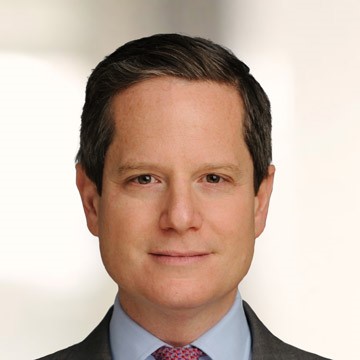This content was correct at the time of publication and is no longer being updated.
Listen to the full interview with Lorenzo Simonelli below, as well as the analysis from Fidelity’s investment team. You can subscribe to the podcast on your mobile device by following this link or search ‘Fidelity Answers’ in your podcast app.
The Interview
The Analysis
In recent weeks, the sustainability debate in the energy industry has returned to the question of how serious some of the big oil companies are about investing in renewables, with environmental lobby groups arguing that the focus on gas as a part of the medium-term solution is tantamount to greenwashing. Lorenzo Simonelli, who has headed Baker Hughes since 2017 when it was a unit of GE, is among a group of CEOs in the sector arguing that pragmatism dictates gas will be a vital part of the energy mix over the coming years.
“When you look at the demand outlook … we need hydrocarbons in the coming decade to continue to play a role,” he told Fidelity International’s Global Head of Research Ned Salter in the latest of our interviews with the heads of some the world’s leading companies.
Old versus new
Fidelity energy analyst Paul Gooden agrees that, in the drive to shift to renewables, we need to face up to some home truths.
“80 per cent of primary energy supply today comes from fossil fuels and we haven't even hit peak coal yet. It's going to take quite some time, probably until the early 2030s, for peak oil, and peak gas is probably at least a decade behind that.”
But he also says that at some point Simonelli or his successor is going to have to stop allocating capital to the traditional oilfield services businesses.
“They'll be led by the market […] As you go into a period of accelerated decline of oil demand, that's going to have implications for the oil price. And I suspect they're also going to respond to signals from the equity markets.”
But how in reality is Baker Hughes approaching that trade off in the near term? The company, which now classifies itself as a broader ‘energy technology’ business that goes beyond its roots in traditional oil and gas operations, sits in both the old and new spheres of the sector. Given the changes demanded of the industry to get to net zero, and those already beginning to take shape, shouldn’t Baker Hughes be planning today to shut down the traditional “dirty” parts of its business to focus on the good bits?
“You shouldn't,” says Simonelli. “It's important that we [don’t] lose focus on the benefits that we've received from oil and gas. At the same time, we need to continue to reduce the carbon footprint. And there's ways you can do that by minimising flaring, by upgrading equipment so that there's no leakage. By doing a series of investments from a digital perspective to drive optimisation.”
LNG's carbon footprint
For Simonelli, liquefied natural gas (LNG) is a large part of the solution to the “trilemma” of demands facing the sector in the aftermath of Russia’s invasion of Ukraine - that energy be affordable, secure, and sustainable. “Natural gas is an abundant resource,” he says. “It can be liquefied and transported. And it is actually the least impactful [fossil fuel] from an environmental standpoint.”
Primarily, he sees LNG as a realistic solution in an imperfect world: “You won't be able to fill the world with renewable solar panels or wind farms. You need natural gas to be there as a provider of consistent and also continuous energy. Some countries that don't have natural resources and don't have the sun, don't have the wind, they're still going to need to power.”
Rosanna Bucherri, who manages US value funds for Fidelity, agrees: “Intermittency is a problem for renewable energy. I'm sure it will get resolved along the way, but it's a pragmatic approach to keep on investing in and using natural gas today.”
Where some see LNG as a temporary solution as renewable solutions improve, Simonelli sees LNG as a destination fuel in itself - that is, an energy resource that we can continually rely upon, along with those other renewable sources. He envisages a continued “diversification of the energy mix”, one which will “be full of renewables, natural gas, hydrogen, nuclear over time, and that provides also the security of supply.”
The ESG agenda
Quickfire
Fidelity: What's your personal sustainability tradeoff that you make as an individual?
Simonelli: I try and cycle a lot more than drive and also go walking.
Fidelity: What is the most pressing issue facing governments in the next five years?
Simonelli: How to balance the increasing debt burden that governments are going to have.
Fidelity: And what predictions do you have for where we'll all be in ten years time?
Simonelli: That's a tough one. I think that we will find a way to continue to develop.











































